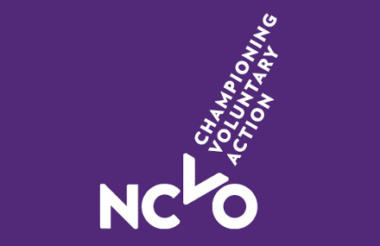Charities are putting emphasis on staff having advanced qualifications, possibly at the cost of hiring people who face barriers to education and work experience, new NCVO analysis suggests.
More than half the voluntary sector workforce is educated to degree level, and more than 70 per cent of voluntary organisations put critical or significant value on applicants having relevant work experience, according to Planning for tomorrow's workforce, which was published today.
But 43 per cent of sector employers say their staff have skills and qualifications that are more advanced than required for their position. This is higher than in the public sector, at 41 per cent, and than in the private sector, 33 per cent.
NCVO said employers could be excluding candidates from backgrounds where people face barriers to higher education or are less able to gain experience through volunteering and unpaid internships. It said this is likely to affect people from less advantaged socio-economic backgrounds and disabled people.
The charity sector also hires fewer people from BAME backgrounds. Only 9 percent of staff, compared to 12 per cent in both the public and private sectors, are from BAME backgrounds.
It also found charities were less likely than other employers to hire staff into their first job after leaving education.
Researchers analysed the results of three major national surveys; the Employer Skills Survey, the Employer Perspective Survey and the Labour Force Survey.
'We need to think about the consequences of this'
Keeva Rooney, senior researcher at NCVO, said: “The findings paint a clear picture of a highly skilled workforce, indeed often an over-skilled workforce. This is in many ways an asset and likely reflects the positive commitment people have to staying in the sector.
“Of course there are very highly skilled people from all backgrounds working in and looking to join the sector. But the reality is some groups still face greater barriers to higher education and to getting work experience, particularly unpaid experience.
“It’s important that we think about the consequences of this for the shape of workforces as a whole. It could be a contributing factor in lowering diversity. If charity employers are prioritising applications from, or in some cases only accepting applications from, those with degrees or even higher-level degrees or with possibly more experience than is really required, they inevitably create barriers that some groups will be more likely to be affected by than others.
“Unless charities think about how to invest in bringing in and training staff with different backgrounds, we’re likely to continue to see the sector struggling in terms of diversity.”
#NonGraduatesWelcome: 'Charities must consider the negative impact of asking for unnecessary qualifications'
The report has been welcomed by a new campaign which is calling on charities to stop excluding people who do not have a university degree. #NonGraduatesWelcome is being run by David Burgess, director at Apollo Fundraising, who says requiring a degree can be a barrier to diversity.
He said: “We welcome today’s report from NCVO, and the strong call to charities to consider the negative impact of asking for more qualifications and experience than is necessary when recruiting.
“Charities do vital work and require skilled staff across their organisations. While some of these jobs require knowledge that can only be acquired through a degree course, the majority do not. Yet, as today’s report shows, too many organisations continue to see university as the only route into the sector.”
He added: “By prioritising graduates over all other entry routes, the charity sector is inheriting these diversity and inclusion challenges from higher education. #NongraduatesWelcome is calling on every organisation to review their job descriptions and remove the requirement for a degree-level qualification where it is not required.
“In its place, we encourage organisations to be more transparent about the skills, abilities and knowledge actually needed to be successful in the role. In doing so we hope more charities will see that a degree course is just one of many ways someone can acquire the skills needed to make a difference in the charity sector.”
|
Related articles











